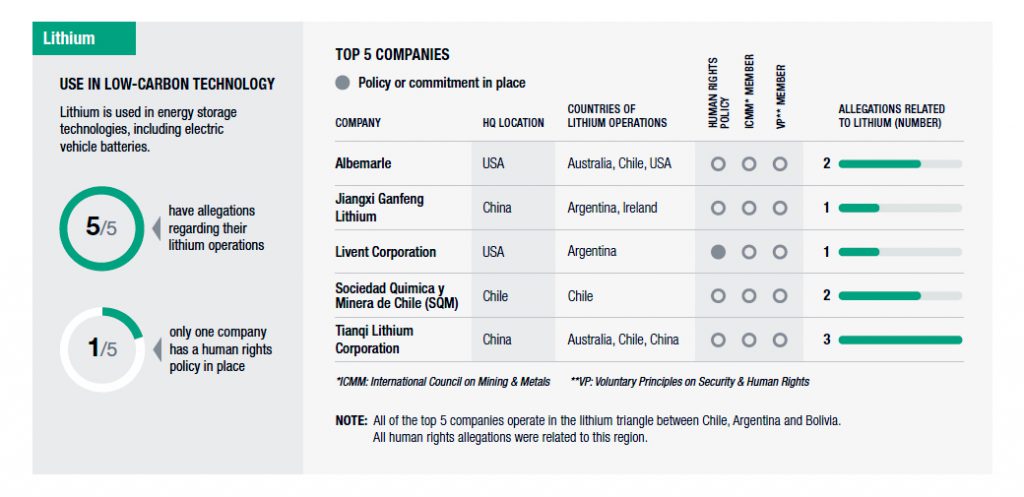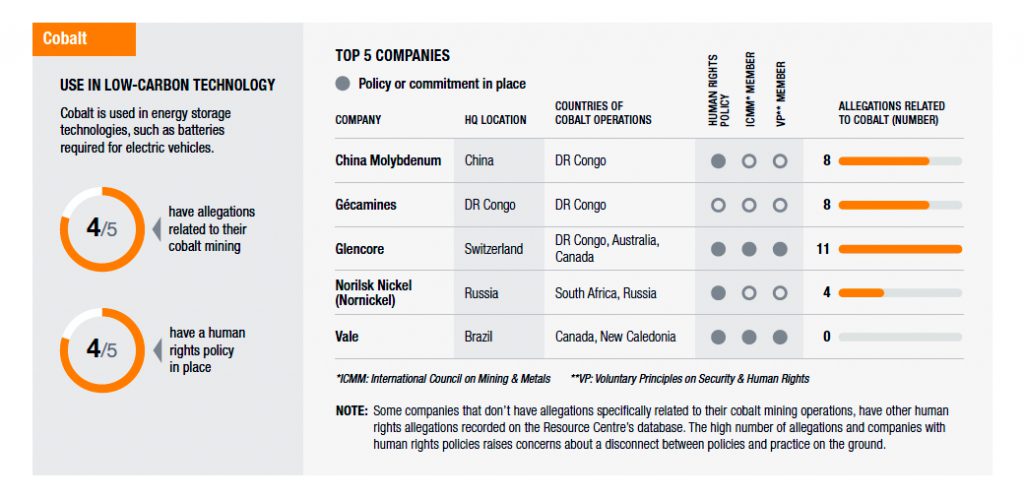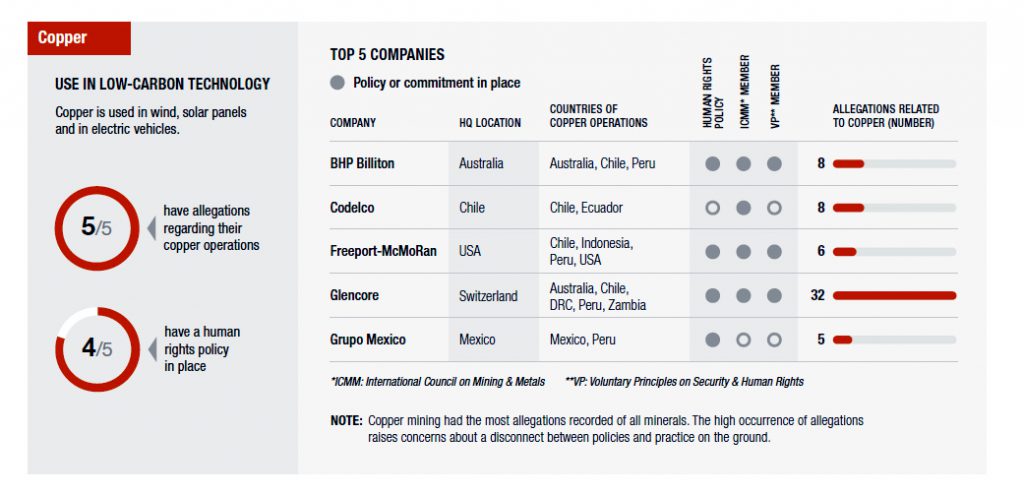Most of the world’s top companies mining
for lithium, cobalt and other minerals used in the making of electric vehicles’
(EVs) batteries, solar panels and other green technologies have been linked to
alleged human rights abuses since 2010, a new report claims.
According to New York-based watchdog Business & Human Rights Resource Centre (BHRRC), which has launched an online tool to track human rights claims against mining companies, 86% (18/21) of the top five lithium, copper, cobalt, manganese, nickel and zinc producers have had accusations related to human rights transgression.
The group argues it has found evidence of companies including Albemarle, SQM, Livent Corporation, Tianqi Lithium and Jiangxi Ganfeng Lithium being accused of rights abuse between 2010 and 2019. From them, only one of the world’s top companies, Livent Corporation, has related policy available.

By launching the Mineral Tracker tool,
BHRRC wants to allow investors, businesses and civil society groups to find
claims against miners, which range from harming access to water to dubious business
practices, corruption, violence and deaths.
The goal, the group says, is to improve human rights practices of companies producing the minerals vital to the renewable energy and EVs sectors.

“The urgent transition to a
low-carbon economy must be fair as well as fast,” Eniko Horvath, senior researcher
at BHRRC says. “But without strong human rights checks the renewable energy
sector risks being linked to labour and environmental abuses in their supply
chains in countries such as Chile, Zambia, and the Democratic Republic of the
Congo (DRC).”
More than half the mineral companies analyzed (62% or 13 out of 21) have publicly available human rights policies, suggesting these are either insufficient or are not adequately enforced in the companies’ supply chains, Horvath notes.
DOWNLOAD FREE BATTERY METALS MAP
Map of major producing mines and mine development projects of minerals used in Lithium Ion Batteries. Commodities include Lithium, Graphite and Cobalt. Map includes locations of 240+ producing mines, 45 development projects, 110+ projects in economic assessment, and 40 suspended mines.
The tracker includes links to in-depth research by top NGOs working in the field, such as Amnesty International, which in March challenged EV market leaders to create “the world’s first completely ethical battery” within five years.
Unless there are radical changes in the ways that cobalt and other minerals are produced, warned Amnesty’s secretary-general Kumi Naidoo, the batteries which power green vehicles will continue to be tainted by abuses, such as child labour.

The post Demand for battery metals, renewables fuelling human rights abuse — report appeared first on MINING.COM.
